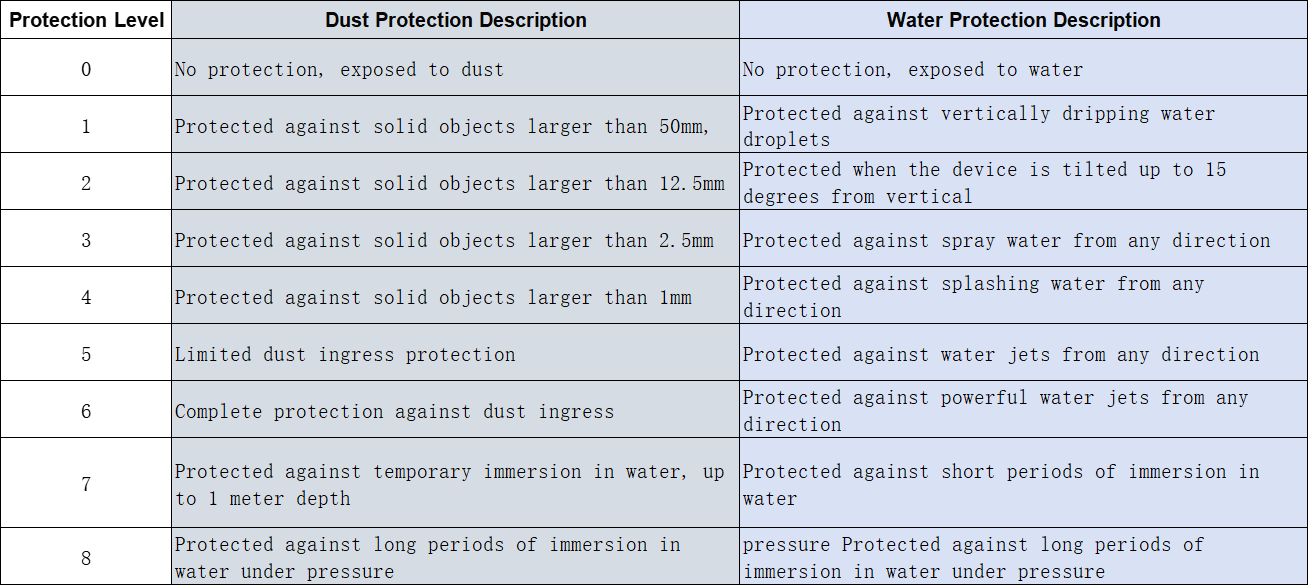Body cameras and other portable devices often feature an IP rating, which is a crucial indicator of their durability and reliability in various environments.
In response to different usage scenarios, RECODA has different IP rating for Its body camera. This article will explain what IP ratings signify and how to choose the most suitable body camera.
What is an IP Rating?
An IP (Ingress Protection) rating is a standardized code that describes the level of sealing effectiveness of a device against intrusion from solid objects, dust, and moisture. It is a two-digit number that provides information about the device's ability to withstand environmental factors.
The first digit refers to the level of protection against solid particles, such as dust or dirt. A higher number in this position indicates a greater level of protection from these particles. The second digit pertains to the device's resistance to different forms of moisture, including dripping water or full submersion. Again, a higher number suggests a higher level of moisture protection.
In general, the higher the IP rating, the more protected the device is from the elements.
However, do all law enforcement gadgets really need to be IP68?
IP68 offers the highest level of dust and water protection, ensuring that devices are completely dust-tight and can be submerged in water under pressure for extended periods without damage. For professionals like police officers and security personnel who may need to use their equipment in the rain and risk dropping it in puddles, an IP68 rating guarantees that the devices will function reliably even in these harsh conditions.
RECODA now has both IP65 and IP68 level bodycamera.
For a detailed breakdown of IP ratings, consult the chart provided, which outlines the specific protections associated with each rating.

For more information about the law enforcement instrument, please contact RECODA.